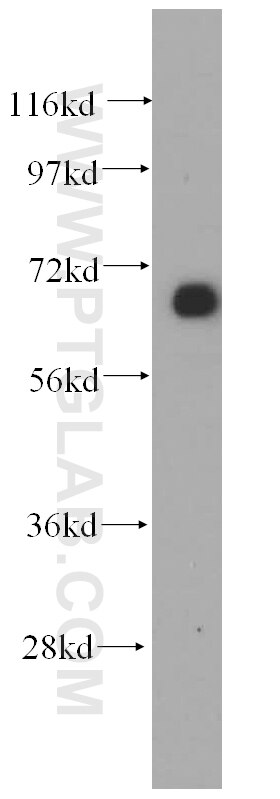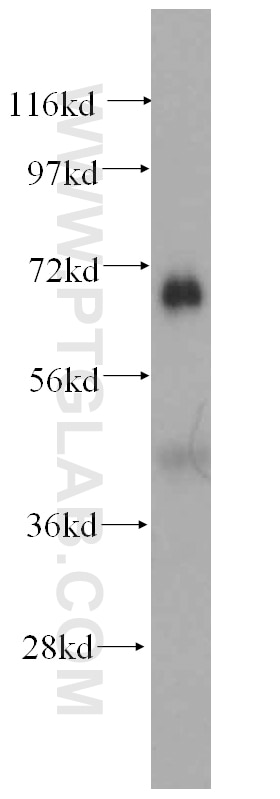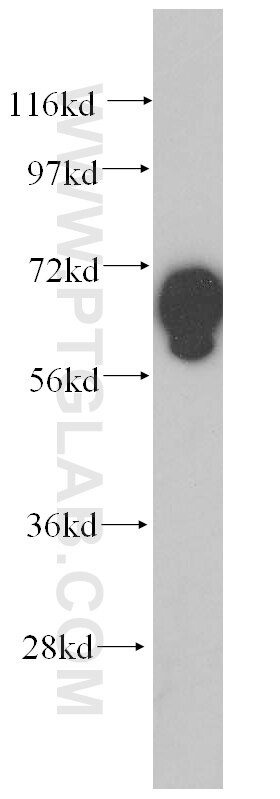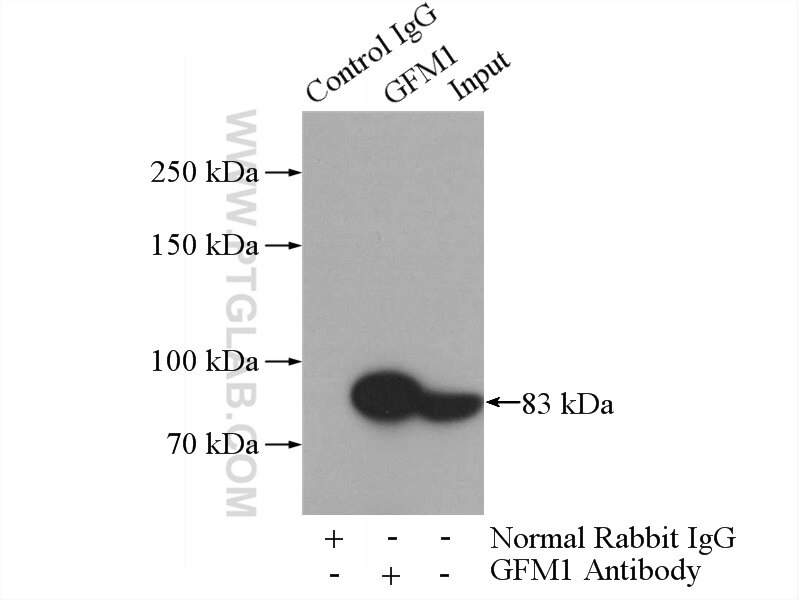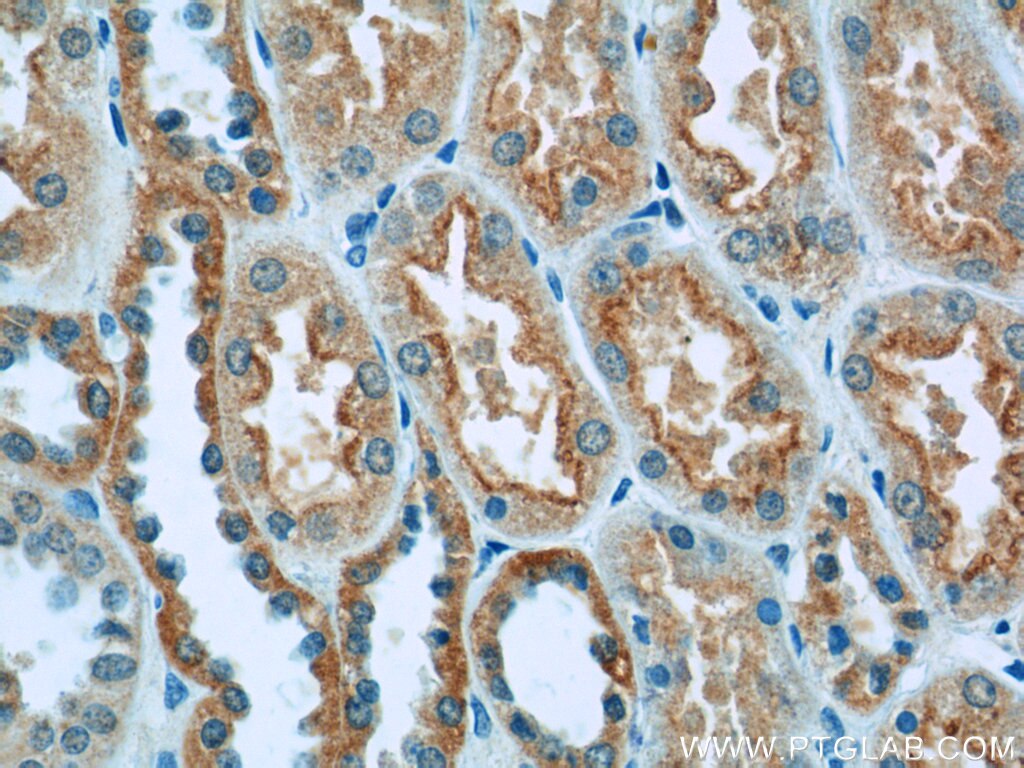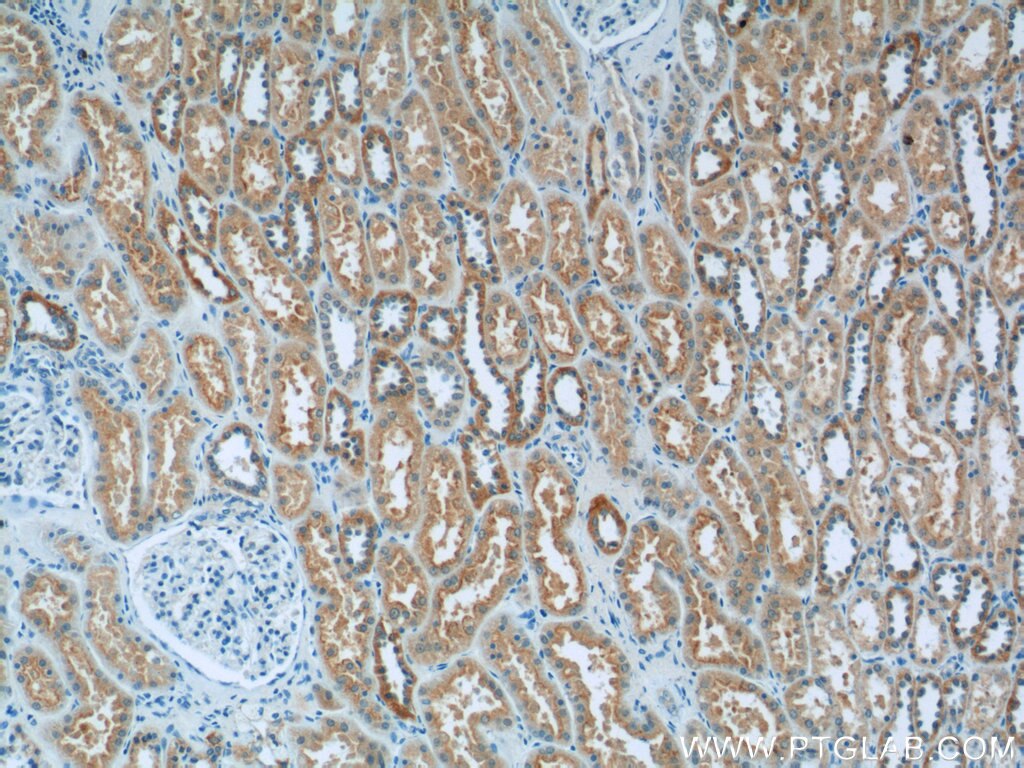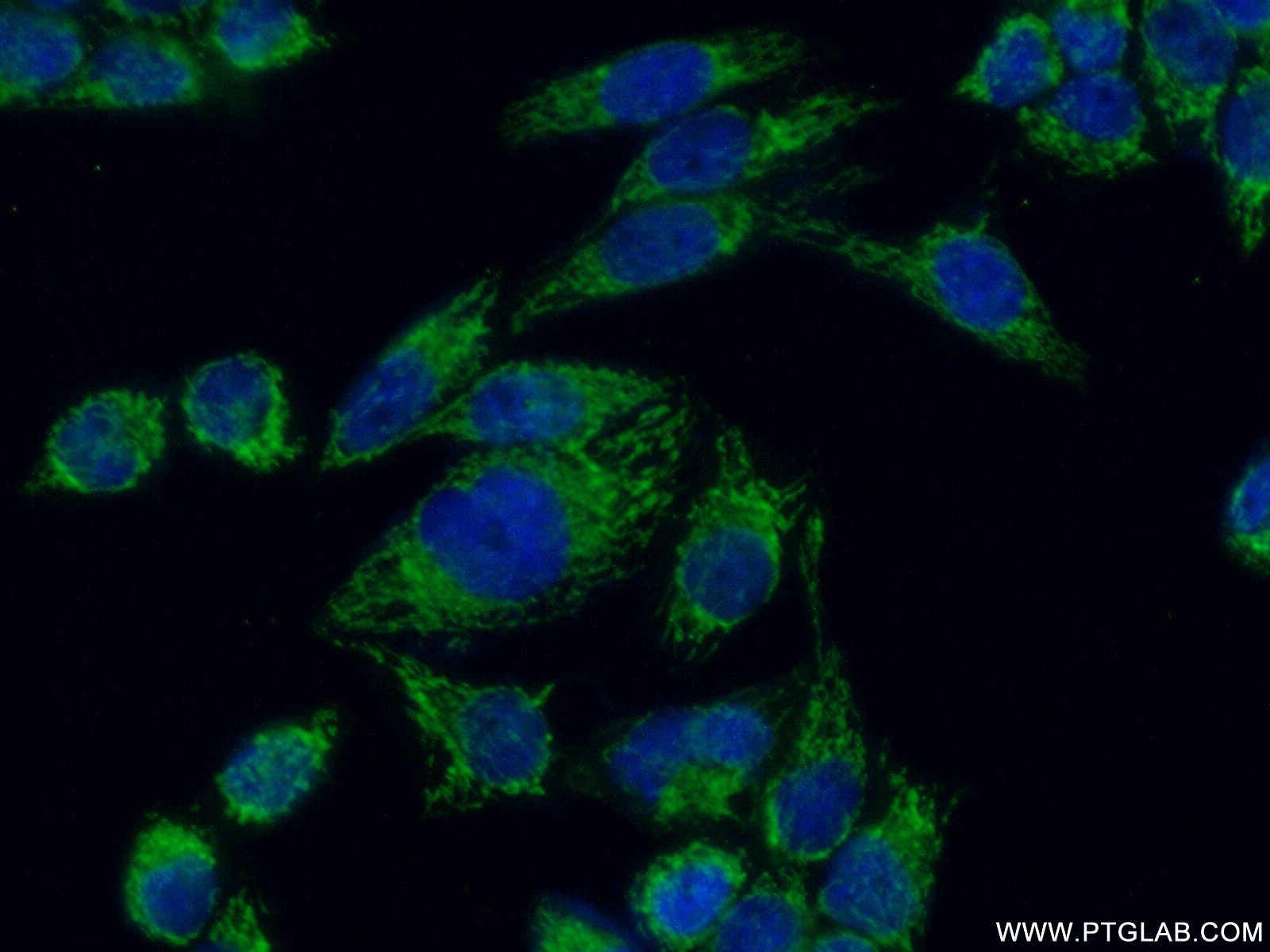GFM1 Polyklonaler Antikörper
GFM1 Polyklonal Antikörper für IF, IHC, IP, WB, ELISA
Wirt / Isotyp
Kaninchen / IgG
Getestete Reaktivität
human, Maus, Ratte
Anwendung
WB, IP, IHC, IF, CoIP, ELISA
Konjugation
Unkonjugiert
Kat-Nr. : 14274-1-AP
Synonyme
Galerie der Validierungsdaten
Geprüfte Anwendungen
| Erfolgreiche Detektion in WB | Mausnierengewebe, HeLa-Zellen, humanes Herzgewebe |
| Erfolgreiche IP | HeLa-Zellen |
| Erfolgreiche Detektion in IHC | humanes Nierengewebe Hinweis: Antigendemaskierung mit TE-Puffer pH 9,0 empfohlen. (*) Wahlweise kann die Antigendemaskierung auch mit Citratpuffer pH 6,0 erfolgen. |
| Erfolgreiche Detektion in IF | HeLa-Zellen |
Empfohlene Verdünnung
| Anwendung | Verdünnung |
|---|---|
| Western Blot (WB) | WB : 1:500-1:2000 |
| Immunpräzipitation (IP) | IP : 0.5-4.0 ug for 1.0-3.0 mg of total protein lysate |
| Immunhistochemie (IHC) | IHC : 1:20-1:200 |
| Immunfluoreszenz (IF) | IF : 1:50-1:500 |
| It is recommended that this reagent should be titrated in each testing system to obtain optimal results. | |
| Sample-dependent, check data in validation data gallery | |
Veröffentlichte Anwendungen
| WB | See 4 publications below |
| CoIP | See 1 publications below |
Produktinformation
14274-1-AP bindet in WB, IP, IHC, IF, CoIP, ELISA GFM1 und zeigt Reaktivität mit human, Maus, Ratten
| Getestete Reaktivität | human, Maus, Ratte |
| In Publikationen genannte Reaktivität | human, Maus |
| Wirt / Isotyp | Kaninchen / IgG |
| Klonalität | Polyklonal |
| Typ | Antikörper |
| Immunogen | GFM1 fusion protein Ag5616 |
| Vollständiger Name | G elongation factor, mitochondrial 1 |
| Berechnetes Molekulargewicht | 86 kDa |
| Beobachtetes Molekulargewicht | 70 kDa |
| GenBank-Zugangsnummer | BC049210 |
| Gene symbol | GFM1 |
| Gene ID (NCBI) | 85476 |
| Konjugation | Unkonjugiert |
| Form | Liquid |
| Reinigungsmethode | Antigen-Affinitätsreinigung |
| Lagerungspuffer | PBS mit 0.02% Natriumazid und 50% Glycerin pH 7.3. |
| Lagerungsbedingungen | Bei -20°C lagern. Nach dem Versand ein Jahr lang stabil Aliquotieren ist bei -20oC Lagerung nicht notwendig. 20ul Größen enthalten 0,1% BSA. |
Hintergrundinformationen
Different factors catalyze the three stages of protein translation: initiation, elongation, and termination. There are two translational systems in eukaryotes, one in the cytoplasm and the other in the mitochondria. In mitochondria, the elongation phase requires three elongation factors (EF): Tu (TUFM), Ts (TSFM), and G (GFM1)[PMID:19716793]. GFM1 catalyzes translocation during peptide elongation and mediates ribosomal disassembly during ribosome recycling in concert with the ribosomal recycling factor (RRF). [PMID:16487710]
Protokolle
| Produktspezifische Protokolle | |
|---|---|
| WB protocol for GFM1 antibody 14274-1-AP | Protokoll herunterladen |
| IHC protocol for GFM1 antibody 14274-1-AP | Protokoll herunterladen |
| IF protocol for GFM1 antibody 14274-1-AP | Protokoll herunterladen |
| IP protocol for GFM1 antibody 14274-1-AP | Protokoll herunterladen |
| Standard-Protokolle | |
|---|---|
| Klicken Sie hier, um unsere Standardprotokolle anzuzeigen |
Publikationen
| Species | Application | Title |
|---|---|---|
Sci Transl Med Molecular diagnosis of infantile mitochondrial disease with targeted next-generation sequencing. | ||
Int J Mol Sci Translation Fidelity and Respiration Deficits in CLPP-Deficient Tissues: Mechanistic Insights from Mitochondrial Complexome Profiling | ||
Cells Inactivity of Peptidase ClpP Causes Primary Accumulation of Mitochondrial Disaggregase ClpX with Its Interacting Nucleoid Proteins, and of mtDNA. | ||
Rezensionen
The reviews below have been submitted by verified Proteintech customers who received an incentive forproviding their feedback.
FH Miguel (Verified Customer) (03-21-2022) | WB analysis of mouse liver using 14274-1-AP. Mouse liver homogenates in Ripa buffer were subjected to SDS PAGE followed by western blot with 14274-1-AP (GFM1 antibody) at dilution of 1:1000 incubated at 4°C O/N. KI/KO: Compound heterozygous knock-in/knock-out (Gfm1R671C/-) mouse model (1). WT: Wild type control mice (Gfm1+/+). (1) ) Molina-Berenguer M, Vila-Julià F, Pérez-Ramos S, Salcedo-Allende MT, Cámara Y, Torres-Torronteras J, Martí R. Dysfunctional mitochondrial translation and combined oxidative phosphorylation deficiency in a mouse model of hepatoencephalopathy due to Gfm1 mutations. FASEB J. 2022 Jan;36(1):e22091. doi: 10.1096/fj.202100819RRR. PMID: 34919756.
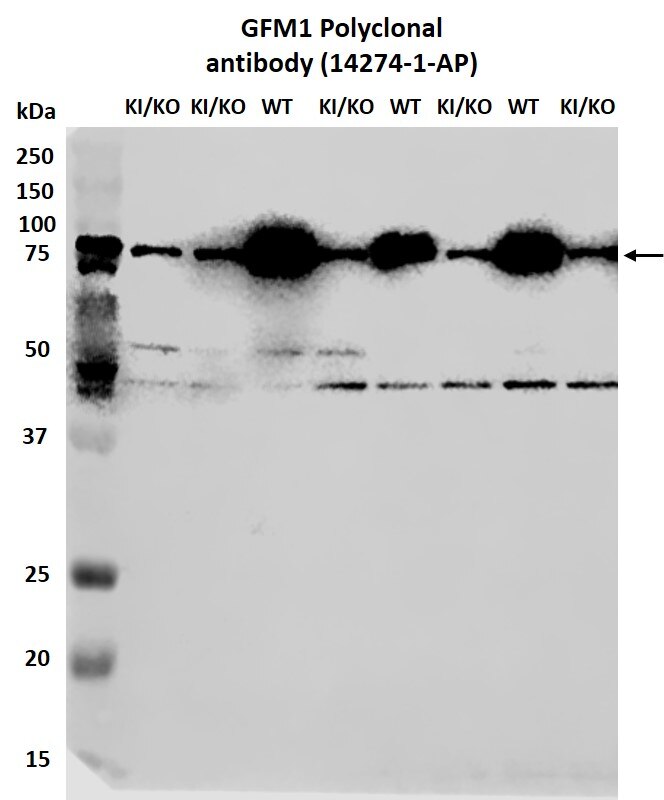 |
